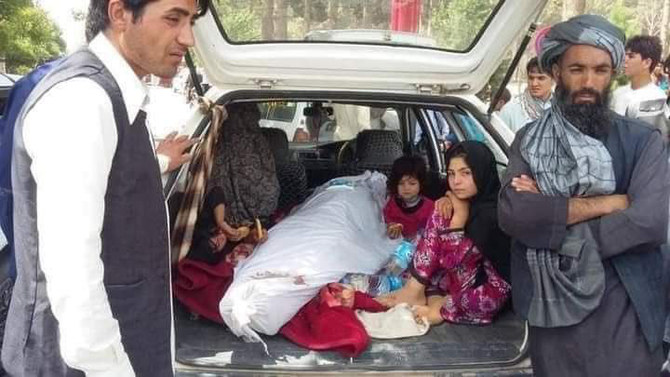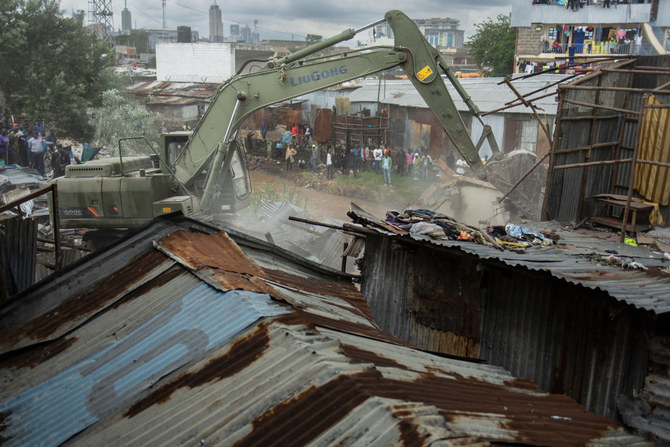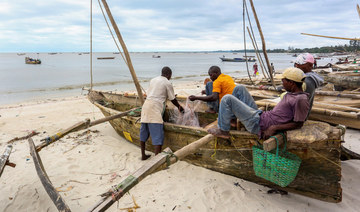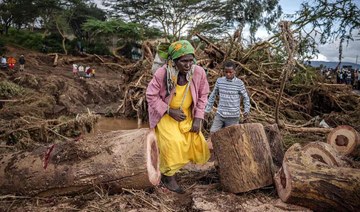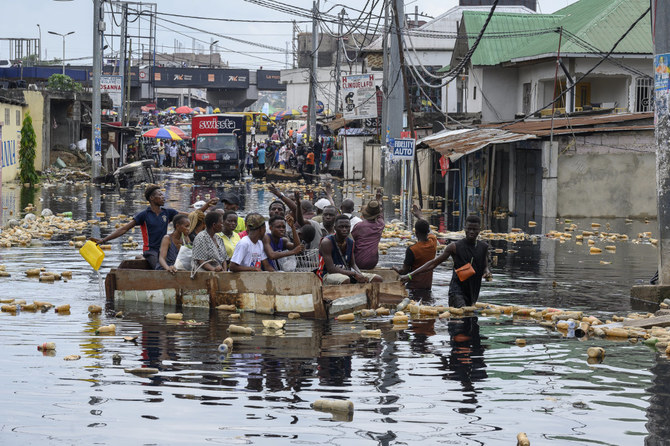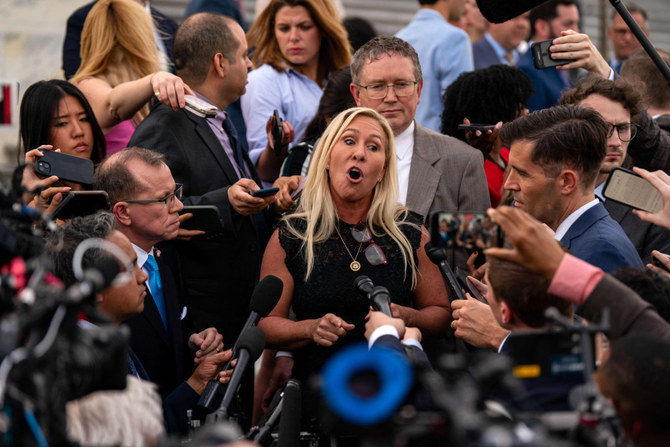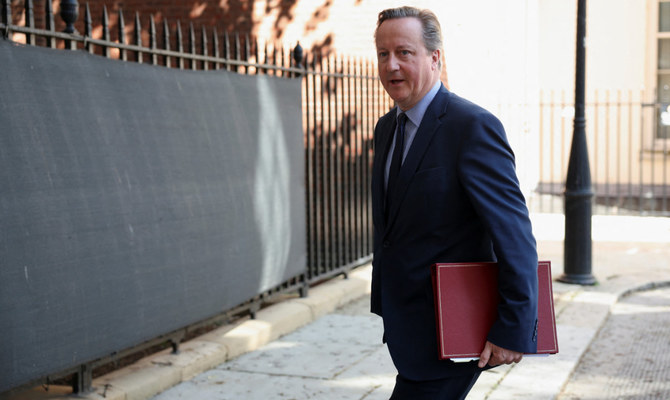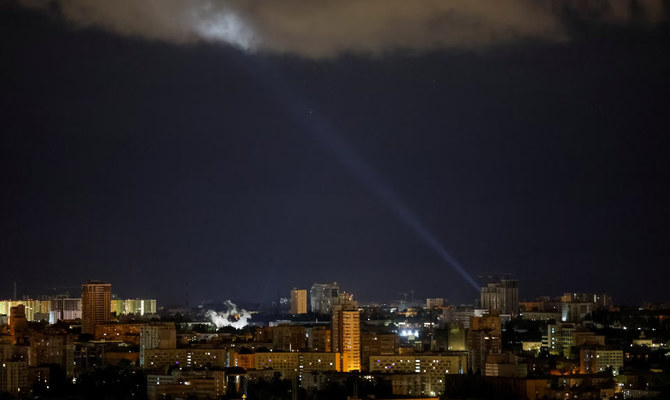KABUL: Until last week, Nazar Mohammad Khasha was an obscure Afghan prankster that few had heard of beyond his village in southern Kandahar. That was before he was dragged from his home, forced into the back of a vehicle and killed by the Taliban, acts that sparked an outpouring of anger across Afghanistan.
A video circulating on social media appears to show Khasha with his hands tied behind his back, squeezed into the back seat of a car between two men, one holding an assault rifle.
One of the men twice slaps Khasha full in the face for cracking a humiliating joke — quite possibly the last he ever told. Another man outside the frame barks: “Don’t let him go … strangle him.”

A second video published on social media appears to show Khasha’s motionless body lying on the ground, having been shot multiple times. A man lifts Khasha’s head to reveal his face, recognizable by his distinctive mustache.
The videos of Khasha’s abduction and murder have flooded the internet, igniting outrage across Afghanistan and overseas over the punishment meted out by the Taliban to a man well liked for the videos of his goofball charm filmed by villagers and posted on TikTok.
Afghanistan’s Tolo News reported that the 60-year-old left behind seven children. Saad Mohseni, the Afghan-Australian chairman of Moby Group, which owns Tolo News, expressed his revulsion at the execution in one word: “Horrific.”
Khasha’s routines, in which he would crack crude jokes, perform songs and poke fun at himself, had picked up a loyal following. His killing has led to fears of the targeting of artists and performers by the ultraconservative militants, long known to be intolerant of humor and free expression.
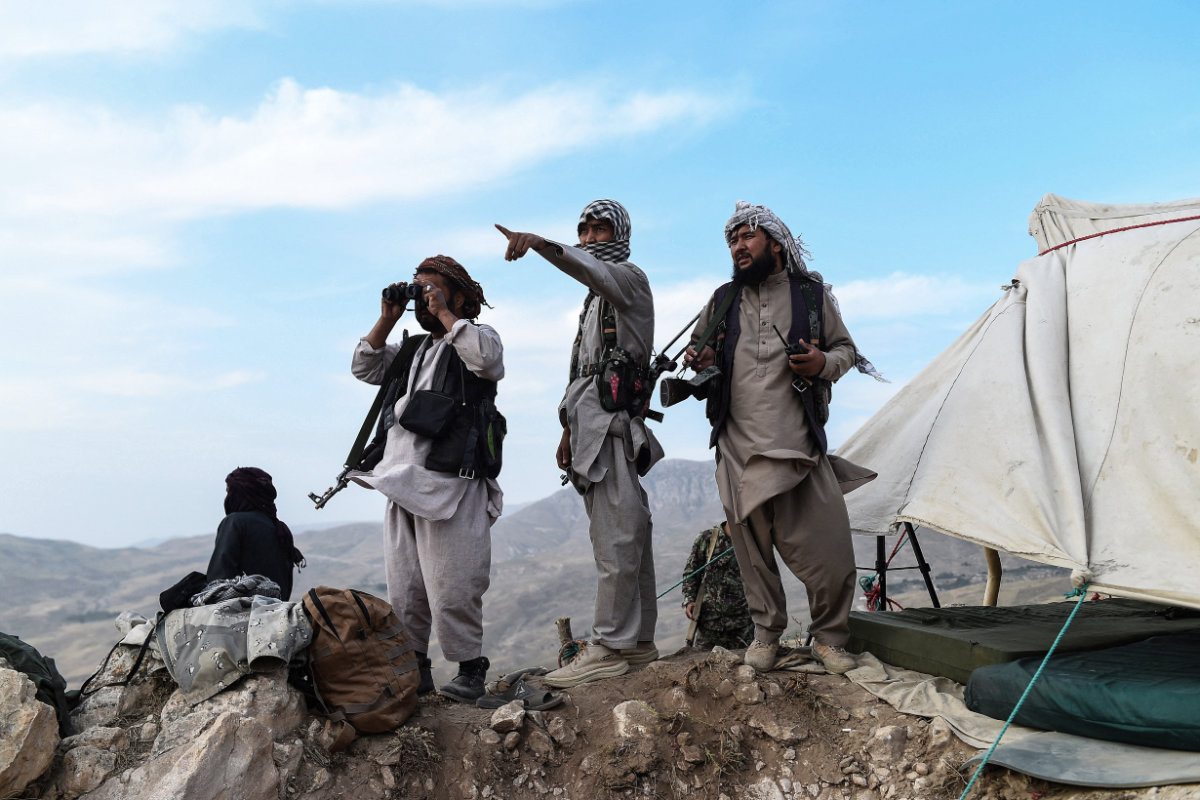
Afghan militia fighters keep a watch at an outpost against Taliban insurgents at Charkint district in Balkh Province on July 15, 2021. (Photo by FARSHAD USYAN / AFP)
In a statement on Wednesday, Hamid Karzai, Afghanistan’s former president, strongly condemned “the killing of Khasha by individuals related to the Taliban” and called it an act “against all human rights acts and orders of Islam.”
Mohsin Dawar, a prominent liberal Pakistani Pashtun lawmaker, said on Twitter: “A man who brought smiles to many was killed brutally for being who he was. The world watches as the Taliban continue with their atrocities against Afghans.”
In a Facebook post, Sarwar Danesh, Afghanistan’s second vice president, described Khahsa’s killing as “a slap in the face of all people of Afghanistan ... an insult against humanity and dignity,” and a violation of “justice, knowledge and art.”
Ross Wilson, the US charge d’affaires in Kabul, also condemned the killing. “Nazar Mohammad ‘Khasha’ was a beloved comedian, bringing laughter and joy to his community even in dark times,” he tweeted.
“The Taliban kidnapped and lynched him, then gleefully published video evidence on Twitter. We condemn these sickening actions and the Taliban leadership should too.”
The Taliban may have picked on Khasha for more than just his social media antics; he was also a police officer in Kandahar and a former soldier.
The group accepted responsibility for the murder after initially denying involvement, saying Khasha was not killed for his comedy routines but for alleged abusive treatment of civilians and collaboration with US forces. It has not produced any evidence to back up that claim.
Maryam Durrani, a prominent women’s rights activist in Kandahar, told Arab News that Khasha “was not a well-known, professional artist or comedian, but a village entertainer, about whom villagers made some short videos for fun.”
If Khasha was targeted in part for perceived affiliations with departing US forces, then Afghans who acted as interpreters and translators for the Western-backed Kabul government or US-affiliated organizations since 2001 many not be able to live freely without fear of reprisal from the Taliban.
Up to 18,000 Afghans who worked for the US military have applied for Special Immigration Visas to the US in recent months in the hope of escaping Taliban retribution. There is mounting public pressure on Western governments to evacuate Afghans who worked with their forces.
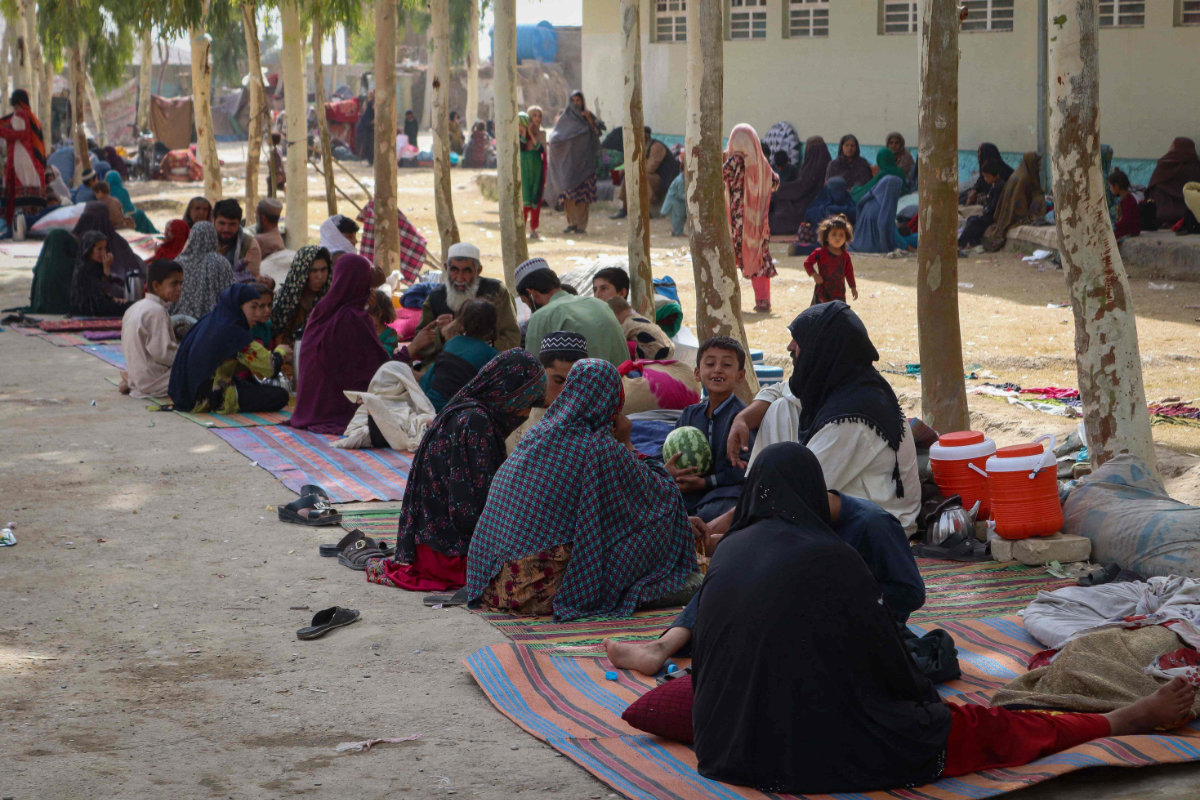
Afghan families gather at a refugee camp in Kandahar after fleeing their homes amid fighting between Taliban and government security forces on July 27, 2021. (Photo by Aved Tanveer/AFP)
Khasha served for many years as a member of a local police force in Kandahar, but information about his relationship with the community in that capacity is scarce.
Local police in Kandahar historically have a bad reputation for abuses and atrocities against civilians in their fight against militants, including attacks prompted by tribal rivalries, extortion and other crimes.
A series of older videos and images online appear to show Khasha carrying assault rifles on various occasions.
Zabihullah Mujahid, a Taliban spokesman, confirmed that Khasha was arrested by the group’s fighters and killed while in its custody, but claimed that he tried to snatch a gun, adding that the incident would be investigated.
“He had served for 18 years as a commander for a post, carried arms, worked with the US and was involved in extortion and brutal acts. He was not a comedian nor an innocent person. We are also investigating why he was killed without a trial,” Mujahid told Arab News.

In the words of Taliban spokesman Zabihullah Mujahid, Kandahar comic Khasha was killed when he snatched a gun from his captors. (AFP photo)
Khasha’s killing follows government allegations that the Taliban has murdered scores of people from one tribe in the Spin Boldak area of Kandahar, where the militants have made inroads since US-led forces began reducing their troop presence in May.
The Taliban denies it is committing such abuses and says it will allow an international investigation. However, reports emerging from areas overrun by the group in recent months tell a different story.
The Taliban is making rapid advances across the country, capitalizing on the final withdrawal of foreign troops — capturing districts, seizing key border crossings, and encircling provincial capitals.
As US and NATO forces leave, people within and outside Afghanistan have voiced concern about the cohesion of the country in the wake of soaring ethnic and tribal tensions, waves of troop surrenders and a weakened central government.
According to US defense officials, the Taliban has taken control of about half of the country’s districts.
In some areas the group is again introducing its harsh interpretation of Islamic rule that earned it notoriety until it was overthrown by the US-led invasion that followed the Sept. 11, 2001, attacks.
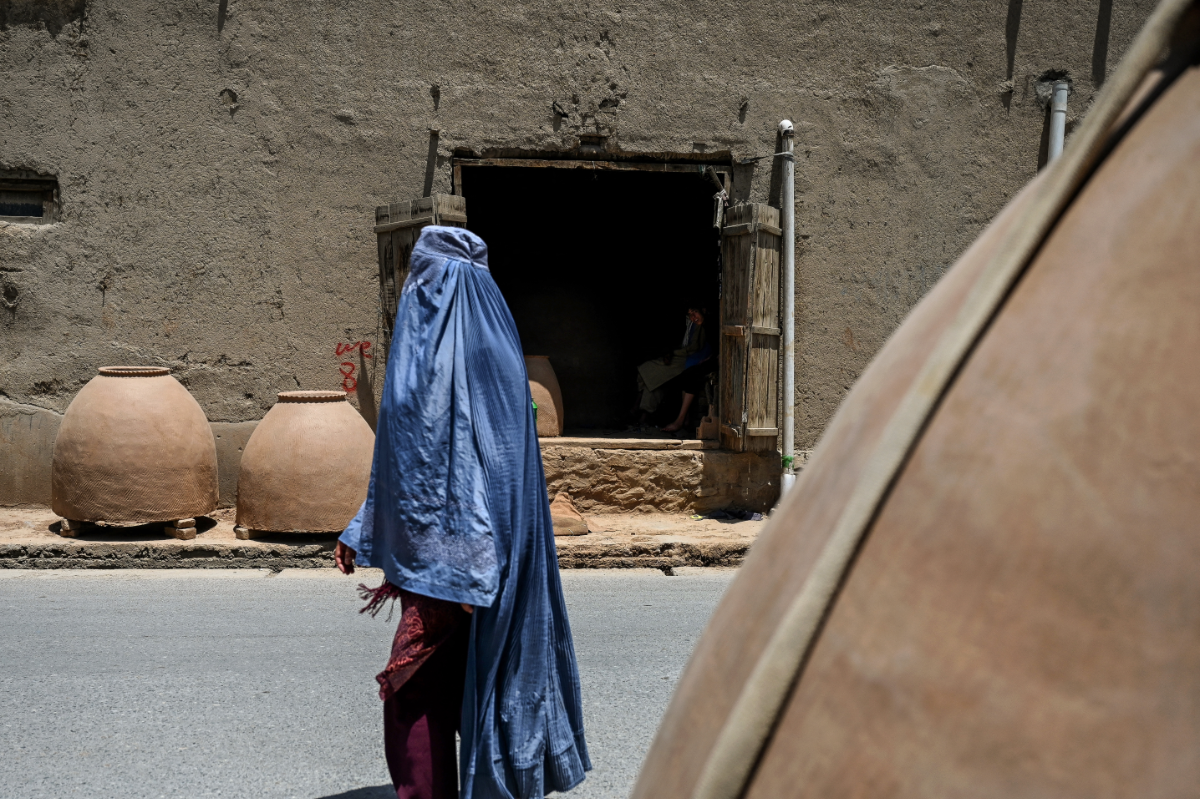
In areas controlled by the Taliban, women are required to wear burqas, with no exception. (Photo by Sajjad Hussain / AFP)
In the areas it has retaken, schools have allegedly been burned to the ground and restrictions placed on the liberties of women, akin to those imposed on communities when the group ruled Afghanistan between 1996 and 2001.
During those years, women were ordered to stay indoors unless accompanied by a male guardian, girls were banned from school, and those found guilty of crimes such as adultery were stoned to death.
Men had more freedom but were ordered not to shave their beards, would be beaten if they failed to attend prayers, and were told to only wear traditional clothing.
Afghanistan is deeply conservative and some rural pockets of the country adhere to similar rules even without Taliban oversight — but the group has tried to impose these edicts even in more modern centers.
The Taliban insist they will protect human rights — particularly those of women — but only according to “Islamic values,” which are interpreted differently across the Muslim world.





